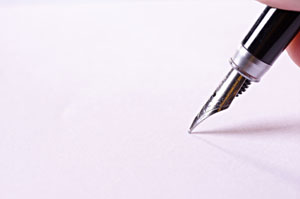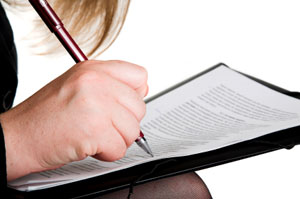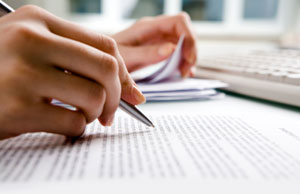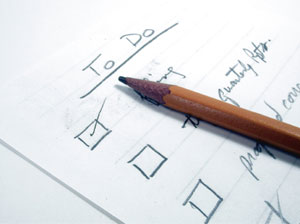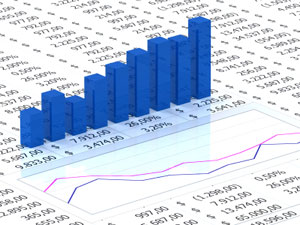Technical writing training covers a wide range of topics and depending on the industry, comes in many formats such as short reports, lab reports, specifications, manuals, proposals, technical articles, white papers, and abstracts. Different reader groups read the same documents; however, their level of understanding can vary greatly.
Our instructor includes several core modules and then works with you to design a technical writing seminar that meets your specific needs and objectives. Writing Technical Documents can be a one-day, two-day, or three-day course, depending on how many topics you wish to incorporate. Core modules cover the basics, review good technical writing skills, and encourage adopting standards and best practices. One of the objectives is to promote consistency and a uniform level of professionalism.
Core modules include the following:
- Ten tips for effective technical writing
- Six principles of technical writing
- Writing with greater clarity and precision
- Strategies to detect weak areas and improve documents
- Organizing material by purpose and audience
- Tips and techniques to start writing
- Improving the appearance of technical documents
Specific, customized modules may include the following:
- Writing both short and long reports
- Writing executive summaries
- Using graphics in technical documents
- Organizing material for procedure writing
- Wording effective conditional statements
- Writing proposals
- Writing manuals
- Writing journal articles, white papers, and abstracts
- Writing policies and procedures
- Writing for the Internet
Seminar Tips:
- Active voice is usually preferred over passive voice; however, passive voice may work best when "the do-er" is unknown, obvious, or unimportant.
- Streamlining technical documents is sometimes difficult. One great way to cull unnecessary information and narrow the focus is to keep your primary reader in mind at all times. Ask yourself: Who is my reader and what are my reader's needs?
- Effective technical writer training shifts the focus from the writer to the reader—write the first draft for yourself but edit for the reader/client.
- Name both tables and figures. Titles should be a noun form, so use participles rather than relative clauses. For example, Employees participating in retirement plans rather than, Employees that participate in retirement plans is more effective.
Frequently Asked Questions about our Technical Writing Training
Answers provided by our technical writing trainer, Catherine S. Hibbard
Q: What exactly is technical writing?
A: Technical writing is writing that encompasses a wide range of fields such as manufacturing, aerospace, telecommunications, electronics, computers, software, pharmaceuticals, and information systems. The types of documents include reports, manuals, specifications, abstracts, white papers, proposals, and policies and procedures.
Q: How is technical writing different from regular business writing?
A: The main difference is the technical subject matter and the challenge of reaching multiple types of readers who have differing levels of knowledge about the subject. One document may have four distinct reader groups: executives, subject matter experts, technicians, and general readers. Crafting documents that meet each reader group's needs is challenging—but attainable by using specific strategies.
Q: Why do you customize each technical writing seminar?
A: I believe that participants want to work with documents that are similar to the documents they write. They appreciate that their specific needs are addressed and met in a customized technical writing seminar rather than wasting their time attending a generic, "traveling road show" that addresses a variety of topics superficially rather than delving into relevant information in detail.
Q: Why do you ask potential clients to submit sample documents?
A: Initially, it gives me an idea of the types of documents that are common within the organization. Another reason I review samples is to gauge the strengths and weaknesses of the writing. Also, if the company uses templates, I can make suggestions as to how the templates may be improved. Most importantly, I use the sample documents to weave pertinent examples throughout the training material. I have found that participants are much more engaged in training that has been specifically tailored to include their types of documents—and incorporates suggested improvements in wording and format.
Q: Doesn't it take a lot of time to customize the training materials? Why do you bother?
A: It is time-consuming, but the end result is worthwhile. The high level of satisfaction of past clients stems partially from the pertinence of the materials and participants' awareness that their employer has made a financial investment to ensure that the technical writing training is relevant and meaningful. Everyone's time is valuable, and I guarantee that participants come away with strong new skills that they can put to immediate use.
Q: What else differentiates your technical writing training from that of your competitors?
A: I have a depth of experience that comes from years of creating specialized training materials for each technical writing seminar and working with a diverse client base. Please see my government client list and corporate client list. Also, I love training and remain enthusiastic about the subject matter and working with new clients. Providing technical writer training is fulfilling and challenging—I continue to learn new information myself and enjoy passing along the latest changes and professional standards/best practices.
Q: Can you suggest some Internet resources related to technical writing?
A: Yes. Click on the links below to find additional valuable technical writing information.
- Technical Communication Center
- Technical communication and writing tips, trends, tutorials, and free ezine by a Fortune 500 tech writer
- I Heart Technical Writing
- Practical advice on developing a successful career as a technical writer
- Technical Writing World
- The social network for technical communicators.
- Job Resources for Technical Writers
- Follow these Twitter accounts:
http://twitter.com/GetTecWritiJobs
http://twitter.com/writersjobs
Instructor

Catherine Hibbard
Catherine S. Hibbard is a nationally recognized expert in business and technical writing. She designs and delivers customized training seminars in technical and business writing, writing effective policies and procedures, and proofreading/editing.
Ms. Hibbard's client base, which is diverse and impressive, draws from both corporations and government agencies such as Centers for Disease Control and Prevention (CDC), several NASA centers, and numerous military branches. Her corporate clients include Nestlé Purina, Lowe’s, Verizon, and Campbell Soup. She has been awarded contracts for large training initiatives with the Office of Professional Management (OPM), Health Resources and Services Administration (HRSA), the Federal Aviation Administration (FAA), New York State Insurance Department, and the Federal Bureau of Investigation (FBI).

